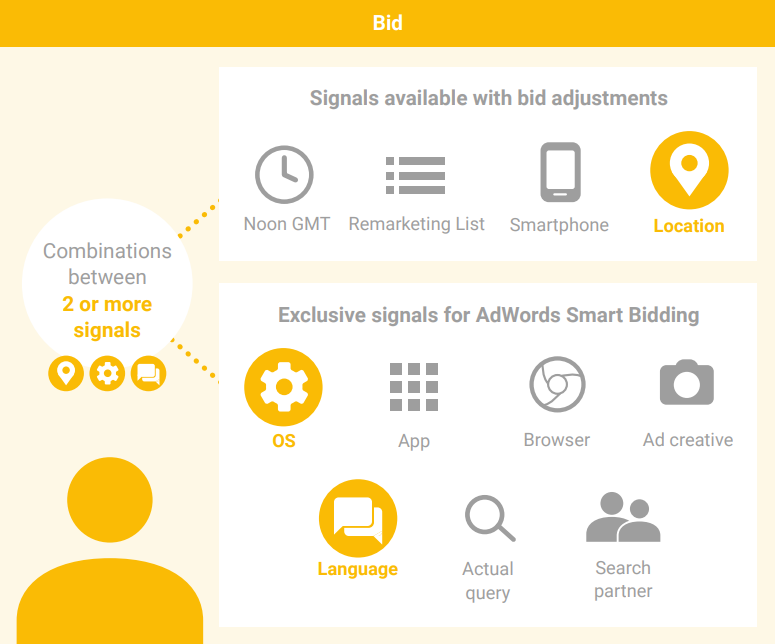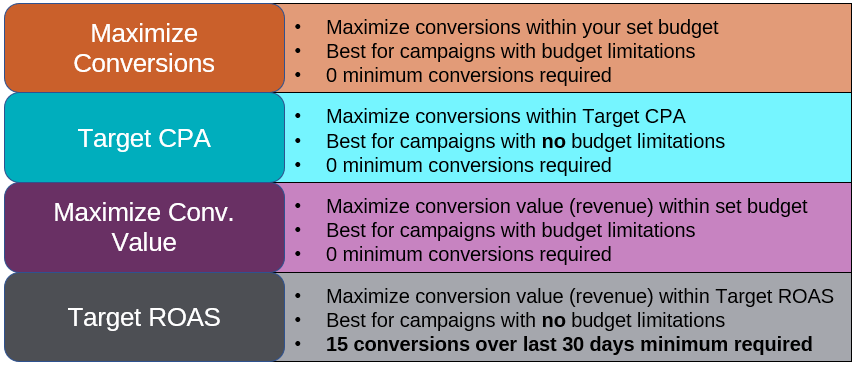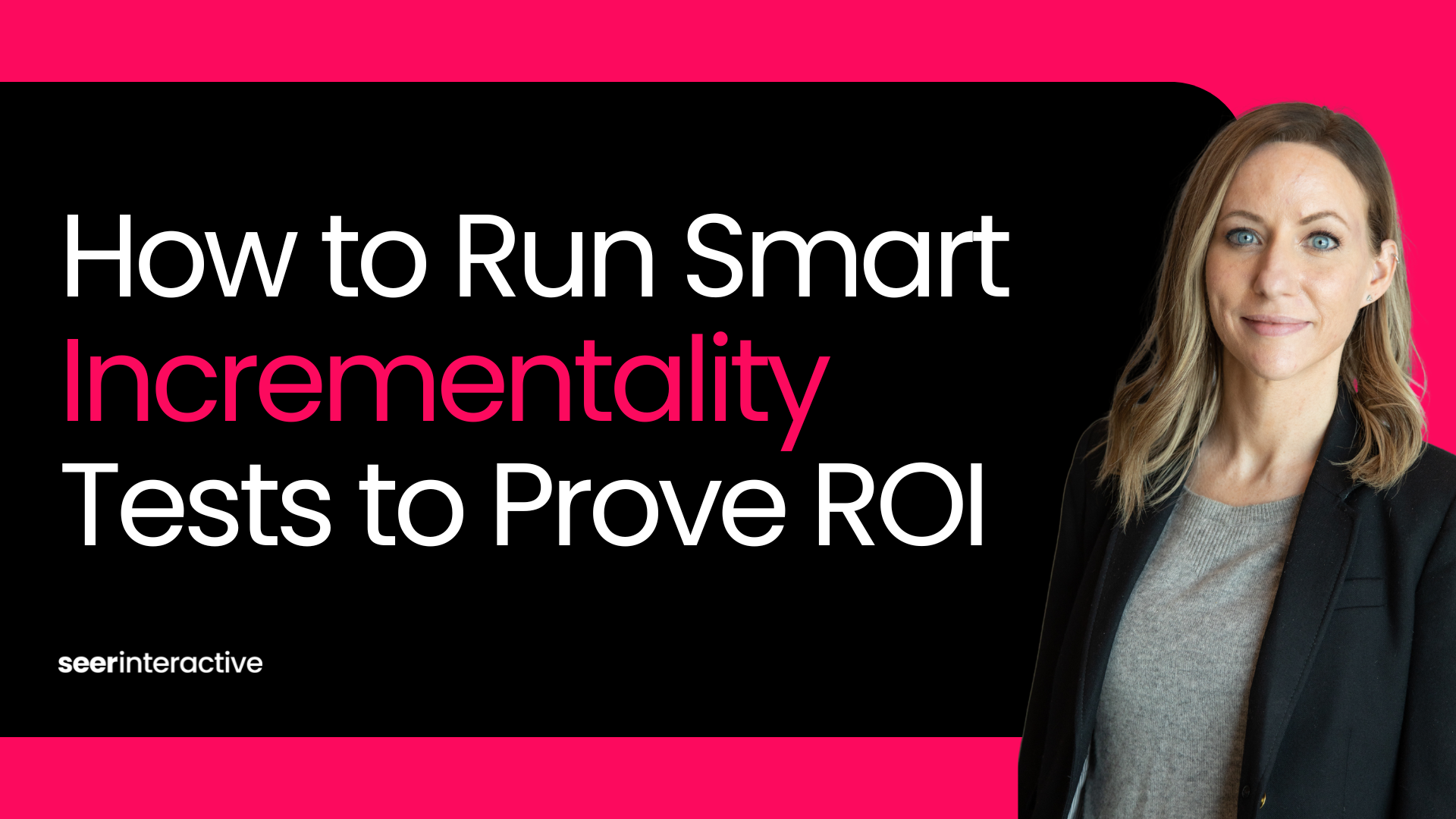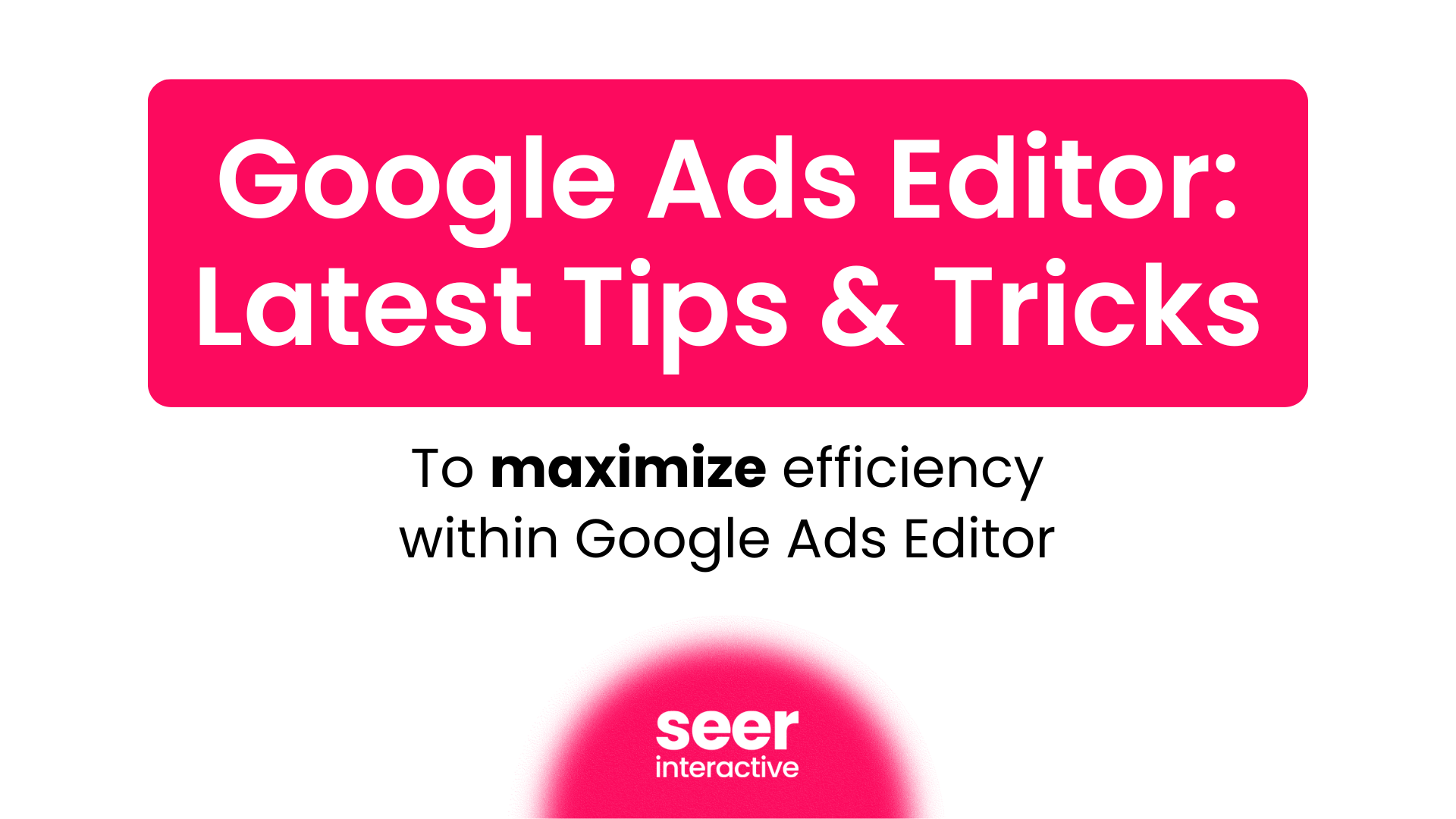Raise your hand if you’ve ever been on the fence about smart bidding
When I began my digital marketing career in 2011, we thought we were doing “smart bidding” when we set a bid to $5.01 instead of $5.00; because you only need to beat your competitor’s bid by a penny, and we figured most marketers weren’t savvy enough to set bids in uneven increments. Different times.
Today, obviously, capital-S “Smart Bidding” means something completely different. We’re talking advanced machine learning algorithms, developed & refined over years by the smartest minds on the search engine payroll, taking into consideration more data points than most of us can actually fathom.
And yet, many paid search and social practitioners shy away from taking this powerful tool out of their toolbox to leverage it to its fullest. Why is that? Below, we’re going to dive into three of the most common objections we hear about smart bidding...and about eight reasons why they’re just bad excuses.
“Really, I’m just not comfortable giving up control to a machine.”
I get it. I’ve said it. But the fact is, the smart bidding algorithms are smarter than us humans and can do way more than we can. They operate in real-time for every single query that is pushed through the engine. And while you may think you have a really strong handle on how to balance bid modifiers for time-of-day, day-of-week, device, and location effectively, you CAN’T possibly do that for every single query. Not to mention the myriad other factors the algorithms also take into consideration when setting a bid that you mostly can’t modify manually.
 Maybe you feel confident about the upper section, but that lower section is a different ballgame, and this graphic doesn’t even scratch the surface. Source: Google’s Smart Bidding Playbook
Maybe you feel confident about the upper section, but that lower section is a different ballgame, and this graphic doesn’t even scratch the surface. Source: Google’s Smart Bidding Playbook
Some of us grew up in a time where people were concerned about mechanical arms taking assembly jobs from auto manufacturer workers. I remember hearing about it, and having those thoughts surface when considering new smart bidding options. “If I let the machine do the bidding, what am I going to do?”
Frankly, lots of things. Bidding is one of the more tedious parts of the job. By letting the algorithms do their thing, you will have more time for things that matter even more and are more worthy of your attention. Spend that time getting a better understanding of how your client really makes money, applying that understanding to bigger strategies, taking efficiency savings and investing in expansions, landing page development, marketing tools.
And you’re really going to appreciate having that time back when markets shift unexpectedly or a global pandemic hits; because the smart bidding algorithms adapt to shifts in consumer behavior extremely quickly, while those manually adjusting will need to collect larger data sets more slowly in order to adjust (somewhat) effectively. This allows you, the human, to be attentive to your client’s needs and focus on reworking your overarching strategies.
“Well I’ve got a 3rd Party Management Platform, so I’m all set.”
There’s no doubt that 3rd Party Management Platforms can be powerful tools in your digital marketing toolkit. But for all their strengths, smart bidding is an area where they can sometimes fall short.
At the very best, 3P bid management can achieve “intra-day bidding” -- meaning it uses data from the last few hours to make bid adjustments every few hours in the day. That represents a huge leap in 3P capability, but it does not compare to the real-time, query-level bidding that the engine-based algorithms use. Even hours-old data is still “historical data”, and in that sense, 3P bidding will always be quite a bit behind the engine algorithms.
Google used to advocate for leveraging 3P bidding paired with its own eCPC semi-smart bidding option. However, these days, that’s no longer the case. You’re likely to get better performance with a fully-automated bid strategy on the engine. Some of these strategies actually do work well in concert with Google’s smart bidding options.
I want to make it clear: this way of thinking doesn’t fully handicap the 3P platforms. Many 3P’s have additional tools and resources that still make them valuable. So keep using their budget navigators & planners, rules, analysis tools, and reports. Use each platform for its biggest strengths.
“My campaigns are just too small for smart bidding to be useful.”
Big or small, smart bidding does it all! Not exaggerating here. Yes, in the earlier days of smart bidding (and not that long ago, really), there were data minimums for just about every automated bidding strategy. However, today, the vast majority of Google’s smart bidding options require no minimum conversion volume.
 With few exceptions, there are minimal restrictions on Google’s smart bidding options Source: Google
With few exceptions, there are minimal restrictions on Google’s smart bidding options Source: Google
Even brand new campaigns can (and should) be launched with a smart bidding strategy in place. Google will actually use signals from the account as a whole, and even broader signals from outside the account to make the decision on how to bid for brand new campaigns.
Sometimes it just comes down to making sure your account structure is one that will give you the highest likelihood of success. And if you have several smaller campaigns within shared categories or with similar goals, there’s always the option to run Portfolio Bidding to group similar campaigns together to pool efforts toward your overarching KPIs.
Bonus “Okay, you got me, I’m just not really sure where to start…”
That’s totally understandable - some of this is really complex! For those of you with dedicated Google or Microsoft reps, they will be an invaluable resource for figuring out how to get started with or dive deeper into smart bidding. But your Seer friends have you covered as well.
Check out our other blog post, where we explain how to get started with smart bidding, how to do so in a safe & controlled manner, and how to properly evaluate the performance.
Let us know if these objections sound familiar to you and what your smart bidding experience has been so far.


